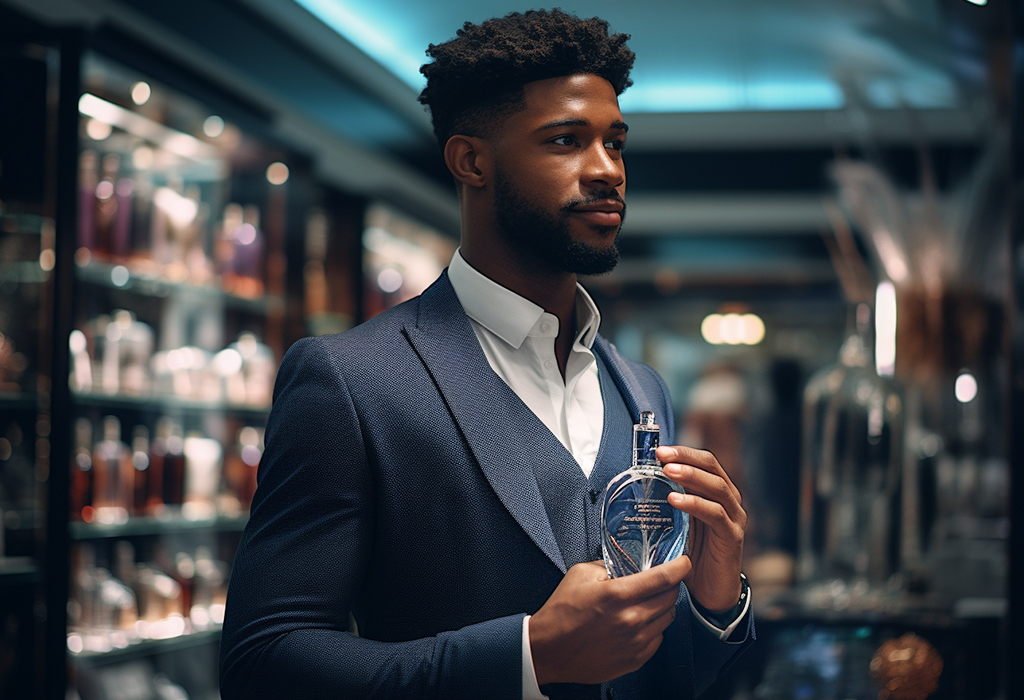- Judith Akatugba
- 0 Comments
- 726 Views
Applying perfume is simple: just give it a quick spritz and you’re done. However, applying fragrance well calls for a little more dexterity and experience. When it comes to perfumery, the application technique of a scent is equally as crucial as the actual note composition. As an illustration: Did you know that where you wear your favorite eau de parfum relies completely on the outfit it accessorizes with as well as the setting in which it is worn? And that inclination of yours to dress your wrists and then massage them together? “Very bad,” declares Francis Kurkdjian, the French-Armenian perfumer who has won awards and is responsible for sophisticated scents like Christian Dior Eau Noire, Carven Le Parfum, and his own line of perfumes. The perfumer is based in Paris. Granted that a bottle of Chanel No. 5 might seem like the ideal accent piece for any stylish bathroom vanity, its freshness (and yours) might be diminished by the constant stream of steam from the shower. Thankfully, you can get back on the correct olfactory path with a few easy adjustments. Here are eight typical blunders people make while purchasing and wearing perfume, along with quick fixes for each.
Read Also: The Best Time to Visit Bora Bora
Don’t Rub or Dab—Just Spray
Kurkdjian claims that the practically unconscious application practice of lightly spraying a little aroma on your wrists, pushing them together, and then going for your neck is actually “very bad.” Why? He goes on, “Heating up the skin, which produces natural enzymes that change the course of the scent” is the result of the friction caused by rubbing. The notes in the middle and top are most affected, as is the dry-down, which is the final and lengthiest part of the fragrance’s development. He says, “With a floral, for example, heat warms everything and eventually causes it to lose its crispness.” Kurkdjian advises doing nothing at all after softly spritzing both wrists with your fragrance to maintain its integrity and make sure it lasts longer on your skin.
Emphasize the Pulse Points
Your body releases heat from the wrists, neck, and cleavage, which may hasten the development of those fragrance notes. Spraying a scent five inches away from the skin is the ideal distance, according to Jacques Huclier, a senior perfumer at Givaudan, whose creations include Gucci Guilty Pour Homme and Mugler A*Men. Spraying too close to the skin can result in an unpleasant liquid flow. He goes on to say that two or three spritzes will last a long time after you become used to a new scent. You can also spray your hair (more on that later), the collarbone, and behind your knees.
Don’t Spray on Clothes
Try not to get perfume on your clothes. Stick to your skin, Huclier advises, as doing so can discolor it. He advises applying it straight to the skin with caution.
Environment Is Key
Perfume is quite sensitive to changes in its surroundings, almost like a live thing when it comes to storage. Kurkdjian asserts that temperature changes of this kind “set off unexpected chemical reactions within the natural ingredients, and therefore age the perfume faster,” saying that “perfume doesn’t like going from cold to hot.” For example, leaving a citrus perfume in the steamy bathroom “affects the freshness” and can give raw materials like patchouli an off-putting smell. He cautions that ultraviolet light can also change the hue of perfumes, making amber tones green. He states, “You would never leave a bottle of Champagne in the sun.” Remarkably, fragrances should be kept at room temperature (about 70 degrees Fahrenheit) in their original packaging. Treat it like a superb cellar wine if you want to go above and beyond to increase its shelf life: “I have acquaintances who keep one or two bottles of their signature fragrances in the fridge,” he remarks.
The Best Perfumes Come in Small Packages
Even with its value, perfume should be worn quickly. Leaving a partially used bottle on your shelf permits oxygen, which is known as the “natural enemy of perfume,” to gradually break down the molecules of the fragrance and change its composition. Naturally, he says, if you spritz on your signature smell every day, a big 6.8-milliliter bottle probably won’t be empty. But for everything else, Kurkdjian says, smaller containers (between 2.4 and 1.2 milliliters) work best because they can keep their freshness for up to three months. And when you arrive at the perfume counter and there’s only one rather large bottle? According to him, if the scent has a screw cap or stopper, you can preserve its bloom by transferring the liquid into smaller vials or putting your partially used fragrances in the refrigerator.
Layer with Purpose
Do you want to combine your favorite fragrance with a new one? Huclier advises that while layering smells, attempt to stick to notes from the same olfactory family (see our comprehensive how-to here). He continues by saying that mixing a fragrance with its auxiliary enhances the scent’s lift and allows for additional skin absorption.
Synthetic Isn’t a Dirty Word
Kurkdjian remarks, “People love the idea of all-natural [perfumes], but it doesn’t always exist.” She brings up musk, possibly the most well-known note, which was once sourced from animals but now gives the scent more gentleness and improves its trail. He claims that other scents, like those of peonies, freesia, and lilies of the valley, must be recreated using a combination of synthetic molecules as they cannot be extracted naturally because they emit no scent at all. And although some of the greatest perfumers have been blending natural and synthetic molecules since the late 1800s, chemical inventions are now closely regulated and put through safety testing by health agencies, such as the U.S.-based Research Institute for Fragrance Materials (RIFM). Kurkdjian claims that a combination of absolutes, synthetic chemicals, and essential oils guarantees the best possible aroma because of this.
When in Doubt, Use Your Head (Or Your Hair)
A few common sense guidelines go a long way in spreading a smell. Kurkdjian explains, “Perfume doesn’t last long on dry skin.” To avoid any olfactory interference, she recommends either an unscented moisturizer or a body lotion that matches your fragrance. It matters where you apply perfume as well. He advises not hiding it with clothing and to concentrate on regions that are exposed to the air, such as the inner elbows and wrists if you’re wearing a sleeveless top, and the pulse spots on your neck. The only exception is if you’re in a really hot environment, in which case it’s preferable to avoid putting fragrance directly on your skin. He suggests the stylish substitute of lightly spraying your hair, scarf, or sarong. “As you sweat, the natural oils of the skin [can] destroy your perfume faster,” he explains. “It aids in the scent’s diffusion because they move with the air.” Let’s talk about making an impression that lasts.











